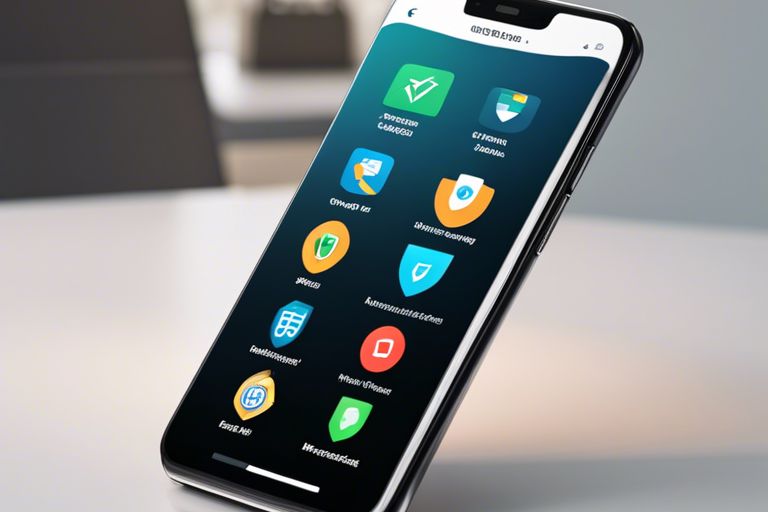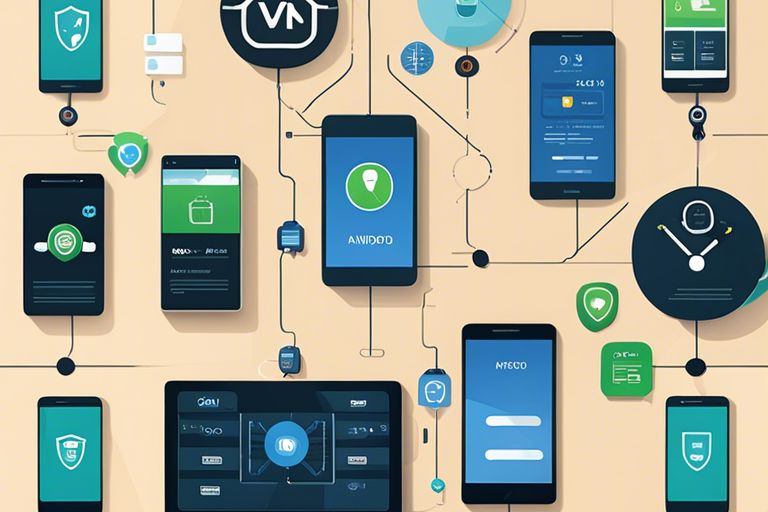7 Best VPNs for Android – Tested & Safe Apps (2024)
Understanding VPNs for Android
As technology evolves, protecting your online activities has become vital. A VPN (Virtual Private Network) serves as a crucial tool that enhances your online privacy and security, especially on mobile devices like Android. This section demystifies VPNs, how they work, and the various types available for your Android devices.
What is a VPN?
Even the most tech-savvy users may not be aware that a VPN is a service that creates a secure connection over the internet. It encrypts your data and hides your IP address, ensuring that your online activities remain private from prying eyes.
How VPNs Work on Android Devices
Any time you connect to a VPN on your Android device, your internet traffic is routed through a secure server. This means that your data is encrypted and your original IP address is replaced with that of the VPN server, making it difficult for anyone to track your online behavior.
Android devices leverage various protocols to facilitate this secure connection. When you activate a VPN app on your Android, it establishes a tunnel through which your data travels—shielded from potential interceptors. This added layer of security is vital in protecting sensitive information, especially when using public Wi-Fi networks.
Types of VPNs Available for Android
Android devices can utilize several types of VPNs to enhance your online security and privacy. Here’s a brief overview:
| Type of VPN | Description |
| Remote Access VPN | Connects you to a secure private network from remote locations. |
| Site-to-Site VPN | Links multiple networks securely over the internet. |
| SSL VPN | Secures web-based applications and protects browsing activities. |
| L2TP/IPSec VPN | Combines L2TP with IPSec for strong encryption. |
| PPTP VPN | Older protocol, easy setup but less secure. |
Another important distinction lies in the characteristics of these VPN types. For instance, Remote Access VPNs are beneficial for securing your personal data when connecting to unsecured networks, while Site-to-Site VPNs are preferred for corporate use to connect different office locations. Understanding these distinctions can enhance your decision-making in choosing the right VPN. Perceiving the effectiveness and security levels of each VPN type is crucial for maximizing your online safety.
Key Takeaways:
- Top Choice: ExpressVPN is highlighted as the best Android VPN due to its fast speeds, strong security features, and efficient battery usage.
- Tested Apps: Over 40 VPNs were tested to identify legitimate options, emphasizing that many available VPNs compromise security or collect user data.
- Streaming Optimization: CyberGhost offers optimized servers for various streaming platforms, making it an excellent choice for watching content on Android.
- Refund Policies: Each VPN has different refund periods, with CyberGhost providing 45 days for longer plans, enhancing user confidence in testing the service.
- Additional Features: VPNs like NordVPN and Surfshark offer unique functionalities such as Meshnet and GPS spoofing, catering to diverse user needs.
Key Factors to Consider When Choosing an Android VPN
You should carefully evaluate several factors before selecting an Android VPN to ensure it meets your needs and provides adequate protection. Here are the key points to consider:
- Security Features: Robust encryption and privacy policies are crucial.
- Speed and Performance: Low latency and high-speed connections enhance your experience.
- Server Locations and Availability: A wide network of servers allows for better access to content.
- User Interface and Usability: An intuitive design improves your ability to navigate and use the app effectively.
- Compatibility: Ensure the VPN works seamlessly with your Android devices.
Assume that these factors align with your specific browsing habits and needs for optimal performance.
Security Features
The security features of a VPN are paramount in protecting your data and online identity. Look for options that offer military-grade encryption, a no-logs policy, and advanced security protocols. Features like a kill switch and DNS leak protection are important as they prevent data leaks if your connection drops.
Speed and Performance
Clearly, the speed and performance of your VPN can make or break your online experience. A slow VPN can hinder activities like video calling, online gaming, and streaming. Aim for a VPN that maintains high speeds while encrypting your data, allowing you to enjoy uninterrupted service.
When testing VPNs, it was evident that some options, like ExpressVPN, only showed minimal speed reduction. For instance, ExpressVPN maintained a drop of just 8% in speed during tests using its proprietary Lightway protocol. This means you can enjoy streaming or gaming without significant lag, ensuring your sessions remain seamless and enjoyable.
Server Locations and Availability
You should consider the server locations provided by your chosen VPN, as a broad network can enhance your ability to access geo-restricted content. More servers can also lead to decreased congestion, which improves speed and connectivity.
Features like a wide array of server locations are critical for achieving great performance. For example, ExpressVPN offers over 3,000 servers in 105 countries, enhancing your ability to bypass geographical restrictions for various streaming platforms and reducing congestion on commonly used servers. This flexibility empowers you in accessing content globally while maintaining strong security protocols.
Pros and Cons of Using a VPN on Android
For anyone considering the use of a VPN on their Android device, it is necessary to weigh the benefits against the potential drawbacks. A VPN can enhance your online experience, but it’s not without its issues. Below is a breakdown of the pros and cons you should consider:
| Pros | Cons |
| Improved security when using public Wi-Fi networks | Possible reduction in internet speed |
| Access to geo-restricted content and services | Some VPNs may collect and sell your data |
| Protection from ISP tracking and throttling | Subscription costs can add up over time |
| Ability to bypass censorship | Complex setup may confuse some users |
| Enhanced privacy and anonymity online | Limited server locations may restrict your options |
| Multiple device connections are often allowed | The potential for unreliable connections on some services |
| Some services enhance streaming experiences | Not all VPNs can unblock popular streaming platforms |
Advantages
Advantages of using a VPN on your Android device include enhanced security and privacy. By encrypting your internet connection, a VPN protects you from hackers, especially on public Wi-Fi networks. Additionally, VPNs allow you to access geo-restricted content, enabling you to enjoy your favorite shows and services from anywhere while preventing your ISP from tracking your browsing habits.
Potential Drawbacks
Cons of using a VPN on your Android device can include a decrease in internet speed and possible connection instability. Although some VPNs provide robust security features, others may not prioritize user privacy, leading to data collection practices. Furthermore, VPN subscriptions can become costly over time, which may deter some users from receiving the benefits of increased online security.
Pros and cons of using a VPN are necessary to understand before making a decision. While you may experience slower connections on certain VPN services, the trade-off with enhanced security and privacy can be worthwhile. Additionally, not all VPNs are created equal; some may fall short in protecting your data, necessaryly defeating the purpose of using them in the first place. It’s crucial to choose a trusted VPN to maximize your protection.
When Should You Use a VPN?
Using a VPN is particularly beneficial when you are in situations that could compromise your online security or limit your access. Whether you’re connected to a public Wi-Fi network, accessing geo-restricted content, or simply looking to browse privately, a VPN ensures that your data remains secure.
For instance, if you’re traveling abroad and want to access your streaming services, a VPN can help you bypass geographical restrictions. Additionally, when using public Wi-Fi networks in cafes or airports, a VPN can protect your personal information from potential cyber threats and hackers. Understanding when and how to use a VPN can significantly enhance your overall online experience.
Tips for Selecting the Best VPN for Android
Many factors can influence your choice of the best VPN for Android. Here are some crucial tips to help you make an informed decision:
- Consider your privacy needs, including the strength of encryption and privacy policies.
- Look at connection speeds; a fast VPN ensures smooth browsing, streaming, and gaming.
- Check for server locations to access content from multiple regions effectively.
- Evaluate compatibility with your devices and operating systems.
- Assess the availability of free trials or money-back guarantees before committing financially.
Thou should take these considerations seriously to maximize your VPN experience.
Analyzing Your Needs
Android users should first assess their specific needs before choosing a VPN. Do you primarily require security, high-speed connections for streaming, or unrestricted access to geo-blocked content? Understanding your requirements can help narrow down your options among the diverse VPN offerings available.
Reading User Reviews and Comparisons
Analyzing various user reviews and expert comparisons can provide insight into the effectiveness of different VPNs for Android. Reviews often highlight user experiences, advantages, and drawbacks that may not be immediately apparent from the official websites.
Table of User Reviews Insight:
| User Feedback | Key Takeaways |
|---|---|
| Speed and Performance | Look for users reporting quick connections and minimal speed drops. |
| Reliability | Check for consistent positive comments on connections and server uptime. |
| Customer Support | Consider VPNs with responsive support for troubleshooting. |
Plus, paying attention to negative reviews can alert you to potential issues, like slow connections or poor customer service experiences, which could affect your choice significantly.
Free Trials and Money-Back Guarantees
The option to utilize free trials or money-back guarantees is important when considering a VPN. This allows you to test the service without financial risk, ensuring it fits your requirements before you commit to a longer-term plan.
To make an informed choice, explore various VPN offerings’ free trial and refund policies. Some, like ExpressVPN, offer a 30-day money-back guarantee which can be a great way to experience their service without cost. However, beware of VPNs that only provide very limited refund periods, as they can leave you with buyer’s remorse if the service does not meet your expectations.
In-Depth Reviews of the Top 7 VPNs for Android
Your search for the best VPNs for Android is made easier with these in-depth reviews of the top contenders in 2024.
1. ExpressVPN – Unmatched Security and Speed
There’s a reason ExpressVPN is widely regarded as the best Android VPN. It combines top-tier security features, including military-grade encryption and IP leak protection, with impressive speeds that minimize latency during video calls and streaming.
2. CyberGhost – Optimized for Streaming
Streaming has never been easier with CyberGhost, as this VPN offers streaming-optimized servers that enhance your viewing experience on apps like Paramount+ and DAZN. With over 11,676 servers, you’ll find reliable connections tailored for your favorite platforms.
Optimized for Android devices, CyberGhost’s streaming servers are regularly tested to ensure high reliability and minimal buffering. The app also features WiFi protection that automatically engages on public networks, providing an extra layer of security as you stream.
3. Private Internet Access (PIA) – Extensive Server Network
Internet freedom is paramount, and Private Internet Access boasts an extensive network of servers that helps you avoid congestion and maintain fast connection speeds. With its user-friendly interface, you can easily connect to over 35,000 servers in various countries.
With such a vast network, PIA allows you to choose from a wide range of locations, ensuring that you get the best performance without lag. Its robust privacy policies further enhance your online experience, making it a solid choice for VPN users.
4. NordVPN – Innovative Meshnet Features
Access all your devices seamlessly with NordVPN’s innovative Meshnet feature, which allows you to connect multiple devices remotely. This feature ensures that your data stays protected no matter where you are in the world.
ExpressVPN users will appreciate NordVPN’s commitment to enhanced security and user control. Its Meshnet feature enables secure file sharing between devices and can work with various protocols for added versatility, making it a strong contender for tech-savvy users.
5. Surfshark – Affordable with GPS Spoofing
Optimized for budget-conscious users, Surfshark provides GPS spoofing capabilities to ensure your real location remains concealed. This feature is particularly useful when accessing location-restricted content or apps.
Surfshark’s affordable pricing, coupled with its ability to temporarily store IP addresses, allows you to securely surf the web without compromising on privacy. The user-friendly interface further enhances your experience, making this an excellent choice for Android users.
6. PrivateVPN – Great for Restricted Access
Access to content can often be restricted, but PrivateVPN’s stealth mode allows you to bypass these blocks. This feature is crucial for users wanting to enjoy uninterrupted access to their favorite apps without limitations.
Android users will benefit from PrivateVPN’s small server network, which may not be the largest but is efficient enough to provide reliable connections. Its focus on overcoming network restrictions makes it ideal for travelers or anyone needing secure access while abroad.
7. IPVanish – Excellent Privacy Features
With IPVanish, your privacy is a top priority. This VPN offers a range of excellent privacy features designed to keep your data safe while browsing on your Android device. Its dedicated servers enhance your online anonymity.
Affordable yet packed with features, IPVanish provides strong encryption, ensuring that your browsing activities remain private. Its user-friendly app ensures you’re protected without compromising on performance, making it an excellent choice for those serious about online security.
Step-by-Step Guide: How to Set Up a VPN on Your Android Device
Despite the numerous benefits of using a VPN on your Android device, setting one up can seem daunting. This guide breaks down the steps you need to follow to ensure a seamless and efficient setup process.
| Step | Description |
| 1. Downloading and Installing the VPN App | Locate your preferred VPN app on the Google Play Store, download, and install it on your Android device by following the on-screen prompts. |
| 2. Configuring Settings for Optimal Performance | Access the app settings to adjust options like protocol selection, split tunneling, and security features for improved speed and effectiveness. |
| 3. Connecting to a VPN Server | Select a server from the list provided within your VPN app and connect to it to start encrypting your online activities. |
Downloading and Installing the VPN App
Assuming you’ve selected your preferred VPN provider, go to the Google Play Store and search for its app. Download the app by tapping on “Install” and wait for it to complete. Once installed, open the app to initiate the setup process.
Configuring Settings for Optimal Performance
Performance is key to enhancing your VPN experience. Dive into the app’s settings to customize features such as protocol selection and enable split tunneling to maximize connectivity speeds while protecting specific data traffic.
Guide the configuration by exploring features like trusted protocols and enabling data-saving options. These settings can drastically improve your internet speed while still keeping your online activities secure. Always ensure that the VPN app is set to launch automatically when you connect to unsecured networks to protect your data effectively.
Connecting to a VPN Server
While using the app, find the option to select a server location. Choose a server that suits your browsing needs, whether it’s for streaming or general browsing, and simply click “Connect” to start using the VPN.
Plus, when connecting to a VPN server, you can often select from various locations globally. This choice ensures that you’re not only accessing content from your country but can also enjoy services like Netflix and other streaming platforms from different regions, enhancing your entertainment experience.
How to Download Android VPN APK Files
Unlike simply downloading apps from the Google Play Store, obtaining VPN APK files requires a cautious approach. APK files can come from various sources, some of which may pose risks to your device’s security. To ensure your safety, it’s necessary to only download APK files from trusted sources that you can verify are legitimate. Always check for user reviews, seek recommendations, and be wary of any website that seems unprofessional or lacks detailed information about the app.
Safety Precautions
Download APK files only from trusted sources to minimize the risk of malware or data theft. Before installing an APK, enable the option to scan for security threats in your Android settings. Keep your device’s operating system updated and ensure that your security software is active, as these measures enhance your defense against potential risks.
Finding Reliable Sources
You should prioritize websites that are well-known for APK downloads, such as the official websites of VPN providers or established tech forums. Avoid unknown third-party sites that may host modified APKs, which can compromise your personal data.
A quick search for the VPN app you’re interested in can yield official websites where you can safely download the APK. Look for signs of reliability, such as HTTPS in the URL, user reviews, and community discussions about the app’s legitimacy. Additionally, some reputable tech websites regularly publish lists of trusted APK download resources, helping you navigate the web safely.
Installing APKs on Android Devices
Devices running Android allow you to install APK files easily, but first, you need to adjust your settings to allow installations from unknown sources. Go to your device’s settings, find the Security section, and enable the installation of apps from unknown sources before you proceed.
Reliable installation involves downloading the APK directly to your device, then locating the downloaded file in your file manager. Tap on the APK file to begin installation, and follow the prompts. This process is generally fast, but remember to disable unknown sources after installation to prevent accidental downloads from untrusted sites. Always check for permissions required by the app during the installation to avoid unnecessary access to your data.
Best Practices for Using a VPN on Android
Once again, using a VPN on your Android device can significantly enhance your online privacy and security. However, to maximize these benefits, it’s crucial to adopt certain best practices that will help you navigate the digital landscape safely and efficiently.
Regularly Updating the VPN App
Clearly, keeping your VPN app up to date is crucial to ensure you have the latest security features and performance enhancements. Regular updates can patch vulnerabilities, add new servers, and optimize existing functionalities, all of which contribute to a smoother user experience and better protection against potential threats.
Monitoring Connection and Speed
On occasion, monitoring your VPN connection and speed is vital for maintaining optimal performance and security on your Android device. This involves checking that your VPN is actively encrypting your data and ensuring that connection speeds remain sufficient for your online activities.
For instance, if you notice significant drops in speed or frequent disconnections, it might indicate potential issues with your VPN service, such as server congestion or even security lapses. Regularly testing your connection can help you choose the best servers for smoother streaming and browsing while ensuring your data remains safe.
Using Kill Switch Features
Kill switches are crucial features that protect your data if your VPN connection unexpectedly drops. This prevents unencrypted data from leaking and exposing your online activities to prying eyes. When enabled, your device loses its internet connection until the VPN is back online.
Another important aspect to consider is that not all VPNs have reliable kill switch features. Choosing a VPN like ExpressVPN that offers an effective kill switch will give you peace of mind, knowing that your data is secure, even during unexpected disconnections. Make sure to configure this feature in your app’s settings to safeguard your personal information while using your Android device.
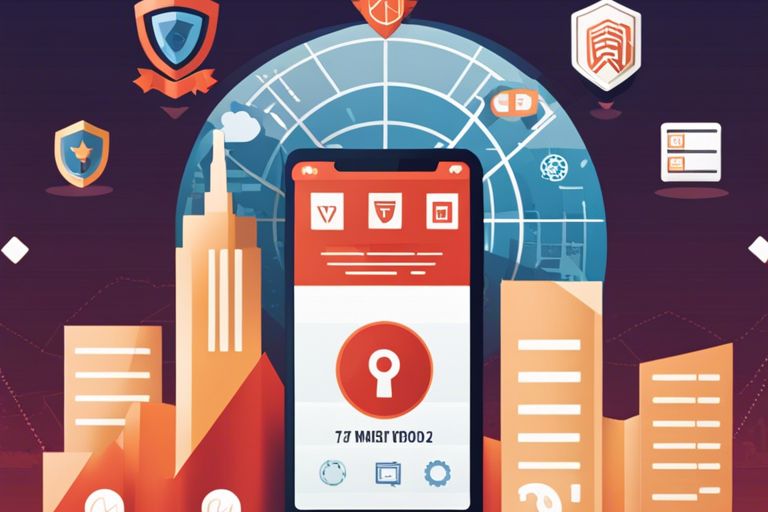
Common Issues When Using VPNs on Android
Not all VPNs function seamlessly on Android devices, and you may encounter several common issues that can affect your experience. Understanding these problems can help you troubleshoot effectively and ensure that your privacy remains intact while browsing on your mobile device.
Connection Problems
Little annoyances can pile up when you experience connection problems with your VPN. You might find that your app frequently disconnects or struggles to establish a secure link, leaving your online activities exposed. This could result in disrupted access to your favorite content or even a lack of protection against potential threats.
Speed Reduction Issues
While using a VPN, you might notice a drop in internet speed, which can significantly impact your online activities. Problems with your VPN connection may cause a slow browsing experience, affecting everything from streaming to gaming. This slowdown occurs because of the added encryption and routing of your traffic through remote servers.
Problems arise when the VPN server you connect to is congested or geographically distant, leading to a noticeable lag. Depending on the VPN service, some apps might cause a more significant speed reduction than others. For instance, ExpressVPN was noted in tests to maintain minimal speed loss (only 8%) compared to others, ensuring your activities like video calls or streaming remain smooth and seamless.
Compatibility with Android Versions
VPNs often come with compatibility issues on older versions of Android, which may limit their effectiveness. You must ensure that the VPN app you choose supports your Android version to benefit from its features fully and protect your data. Incompatibility could lead to crashes or unreliable connections.
Issues arise when your Android version is outdated; many VPN applications require at least Android 5.0 or newer. If you’re running an older version, you may find that your options become limited, potentially leaving your security and privacy vulnerable. It’s crucial to check your device’s compatibility before selecting a VPN to ensure you can use it effectively without any disruptions.
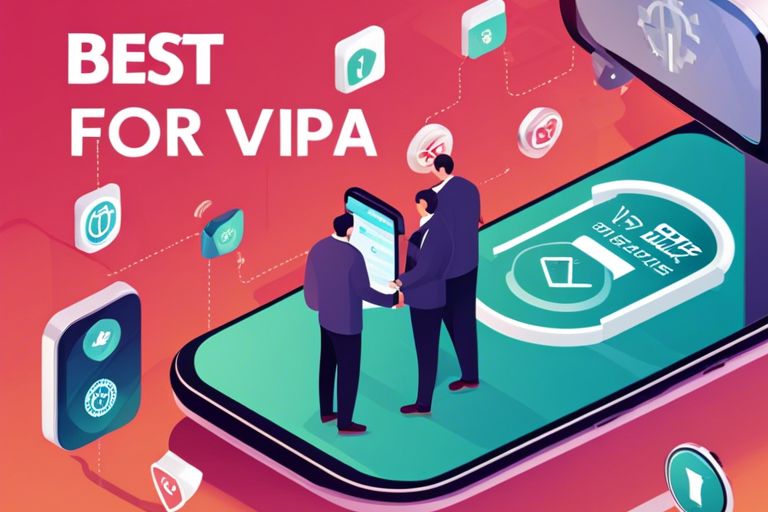
Are Free Android VPNs Safe?
After exploring the landscape of VPN applications, it’s vital to ask if free Android VPNs are safe for your online activity. While these services may seem attractive, they often come with a range of risks that can compromise your security.
Evaluating the Risks
Any free VPN can potentially jeopardize your privacy and data. Many free services track your online behavior and sell your browsing data to third parties, which directly opposes the purpose of using a VPN. Additionally, some free VPNs may not use adequate encryption, leaving you vulnerable to hackers.
Comparing Free vs. Paid VPNs
Any decision regarding whether to choose a free or paid VPN can impact your safety online. Below is a comparison of key factors:
| Factors | Free VPNs |
| Data Privacy | Often collects and sells your data |
| Security Features | Limited or non-existent encryption |
| Server Options | Fewer servers and slower speeds |
| Support | Minimal customer support |
This table highlights the stark differences between the security features offered by free and paid VPN services. By prioritizing your privacy and security, the benefits of a paid VPN far outweigh the enticing concept of a free service.
Recommendations for Secure Free VPNs
Safe alternatives do exist, but you must do your homework to ensure your online safety. Look for free VPNs that have no ads, offer basic encryption, and have a clear privacy policy.
With careful consideration, you can find secure free VPNs that minimize risks without compromising your data. However, it’s generally advisable to invest in a reputable paid VPN option for better privacy protection and performance. Note, the cheapest option can often lead to the most expensive consequences in terms of your online security. Always prioritize your safety and privacy when choosing a VPN for your Android device.
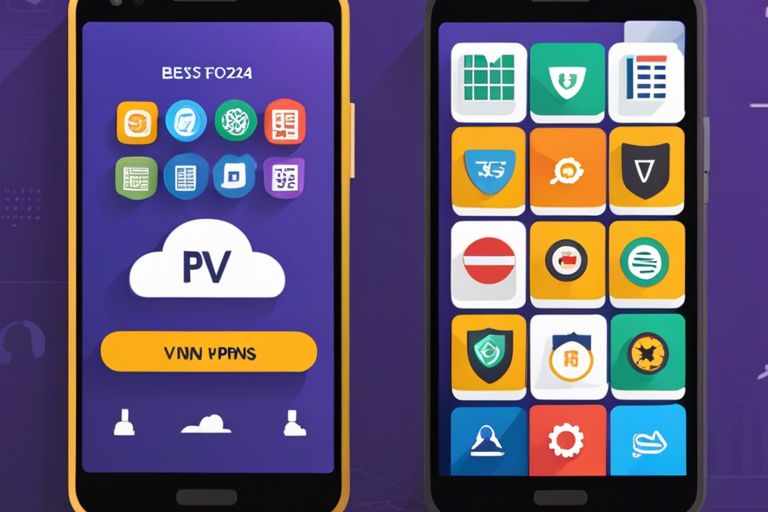
Warning! Avoid These Android VPN Apps on Google Play
Now, choosing the right VPN for your Android device can be challenging, especially with numerous options available on Google Play. While some apps promise security and privacy, many can jeopardize your personal data.
Identifying Red Flags
Play close attention to signs that indicate a VPN app may not be trustworthy. Look for poor user reviews, lack of transparency in terms of data logging policies, and a suspiciously high number of unsolicited permissions requested during installation. Additionally, if a VPN lacks basic features like a kill switch or encryption, it’s best to steer clear.
List of VPNs To Avoid
Little did you know some VPNs can compromise your online safety and privacy. Refrain from downloading apps like **SuperVPN**, **VPN Master**, and **Betternet**. These have been frequently flagged for data leaks or selling user data to third parties.
For instance, many users have reported *SuperVPN* not only suffers from repeated connection issues but also logs user data despite claiming otherwise. Apps like **VPN Master** and **Betternet** show a troubling trend of monetizing user data which can lead to potential security breaches. Always prioritize apps that maintain *strict no-logs policies* to ensure your browsing actions remain private.
Safe Alternatives
An ideal way to ensure your online activities stay secure is to opt for well-reviewed and reputable VPNs such as **ExpressVPN** or **CyberGhost**. These apps are known for their comprehensive security frameworks and user-centered features.
Understanding the importance of using a reliable VPN means recognizing that a trustworthy app not only offers robust encryption but also prioritizes user privacy by having a *transparent data policy*. By choosing apps with a proven track record, such as those tested in our round-up, you can browse safely while enjoying seamless internet connectivity. Keep in mind, while price can be a factor, compromising security for a cheaper service can lead to far greater costs in the long run.
FAQs About VPNs and Android Devices
To help you better understand VPNs for your Android device, we’ve compiled a list of frequently asked questions to address your most pressing concerns.
Do Android VPNs Work on Other Devices?
VPNs are versatile tools that are compatible with a wide range of devices beyond just Android. You can use them on various platforms such as Windows, macOS, iOS, and even gaming consoles like PlayStation and Xbox. Many reliable VPN services offer applications tailored to these devices, ensuring you can maintain your security and privacy across your entire digital ecosystem.
What’s the Best VPN for Android TV?
Some of the best VPNs for Android TV include ExpressVPN and CyberGhost, which offer optimized streaming services for a smooth viewing experience. With dedicated servers for popular platforms, these VPNs help you bypass geographical restrictions, enhancing your streaming capabilities on your Android TV.
VPNs like ExpressVPN provide seamless access to content on major platforms, while offering military-grade encryption and reliable speeds. Many streaming services can be successfully accessed even when they impose geolocation restrictions on their content. This makes it imperative for you to choose a VPN that’s optimized for streaming to enjoy your favorite shows without interruptions.
Which Android VPN is Best in China?
Little is more important than having a reliable VPN in China, where internet censorship is notably strict. Recommended VPNs include ExpressVPN and NordVPN, which effectively bypass the infamous Great Firewall, allowing access to blocked services like Google and major social media platforms.
Android users in China must prioritize VPNs that offer Stealth Mode or specialized protocols designed to evade government restrictions. Choosing such a VPN ensures that you can safely browse the internet while keeping your privacy intact. With the right service, you can enjoy unrestricted internet access without the worry of being detected or penalized.
The Impact of VPNs on Android Device Performance
All VPNs can influence the performance of your Android device, impacting various aspects like internet speed, battery consumption, and data usage. Understanding these effects is crucial for optimizing your VPN experience while ensuring your device remains efficient and protected.
How VPNs Affect Internet Speed
Some VPNs may lead to a decrease in your internet speed due to the additional encryption and routing processes. However, quality VPN services like ExpressVPN and CyberGhost are designed to minimize speed loss, often resulting in only a slight drop from baseline speeds, ensuring seamless browsing, streaming, and online gaming.
Battery Consumption
For your Android device, certain VPNs can drain battery life more quickly than others. While intensive encryption processes might consume more power, optimal VPNs, like ExpressVPN, feature lightweight applications designed to reduce battery usage, allowing you to maintain usage throughout your day.
Understanding the battery demands of your VPN is important. The most efficient VPNs utilize faster, less power-hungry protocols, ensuring that you can stream or browse all day without being tethered to a charger. This is particularly relevant during long travel days or when you’re out and about, making it important to choose a VPN that balances performance with low energy consumption.
Data Usage Considerations
Clearly, using a VPN can lead to increased data consumption, primarily due to the encryption processes that may add extra data overhead. It’s critical to monitor your data usage, especially if you’re on a limited plan, to prevent unexpected charges or throttling by your ISP.
This is particularly crucial for mobile users or those who stream high-definition content, as encrypted connections can use more bandwidth. Make sure to review your VPN settings for options like split tunneling, which lets you choose which apps use the VPN, allowing for better control of your data consumption while still benefiting from a secure connection.
Future Trends in VPN Technology for Android
Keep an eye on emerging trends that will shape the future of VPN technology for your Android devices. These advancements aim to provide enhanced security, privacy, and usability, ensuring that your online presence remains protected and efficient.
The Rise of WireGuard
Now, many VPN providers are adopting the WireGuard protocol due to its lightweight design, which offers both speed and security. This next-generation technology is designed to provide faster connection times and improved battery efficiency on your Android devices, making it an attractive option for users who value **seamless streaming** and **gaming experiences**.
Increased Privacy Regulations
Now that data protection concerns are on the rise globally, you’re likely to see an increase in stringent privacy regulations impacting VPN services. Governments around the world are enhancing their focus on protecting users’ data, mandating that companies implement better security measures and transparency in their operations.
Technology companies will need to respond by ensuring their services are compliant with these new regulations, which may result in additional features that promote **data security** and **user privacy**. This could lead to improvements in the way your VPN operates and safeguards your information, making it more important than ever to choose a service that prioritizes compliance and ethical practices.
The Role of AI in VPN Services
Regulations and technological advancements are now driving the use of artificial intelligence (AI) in VPN services. AI can analyze user behavior and enhance security protocols, ensuring that your data remains protected while optimizing your overall experience.
This integration of AI can help identify unusual patterns of activity, alerting you to potential security breaches, and even automatically adjusting VPN settings based on network conditions. By harnessing the power of AI, VPNs can become **smarter**, more **responsive**, and significantly more effective at protecting your privacy and security in an increasingly connected world.

